The Zone of Interest (2023)
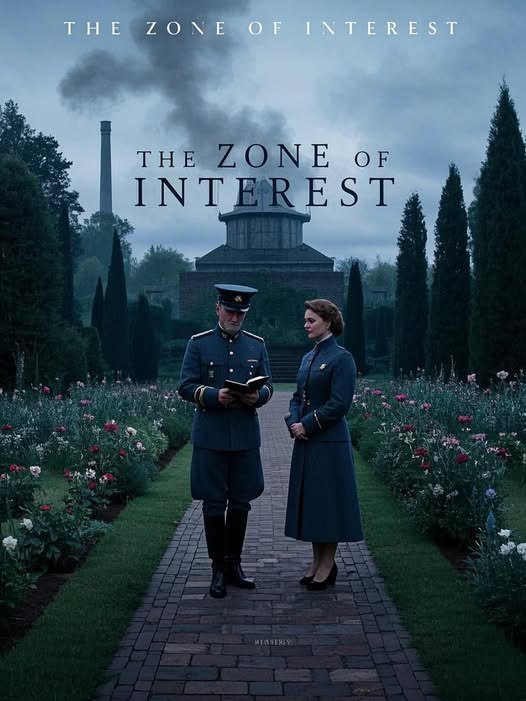
General Introduction
The Zone of Interest (2023) is a historical psychological drama directed by Jonathan Glazer, based on the novel of the same name by Martin Amis. Produced by A24, the film has garnered numerous prestigious awards, including the Grand Prix at the 2023 Cannes Film Festival and nominations at the 2024 Oscars. With its unique approach, the film not only recreates a historical setting but also deeply explores human psychology during one of the darkest periods in history—the Holocaust.
The film centers on the life of Rudolf Höss, the commandant of the Auschwitz concentration camp, and his wife, Hedwig, who live right next to the camp’s walls. Instead of depicting violence directly, The Zone of Interest uses sound, imagery, and contrast to portray the chilling indifference of individuals to horrific crimes.
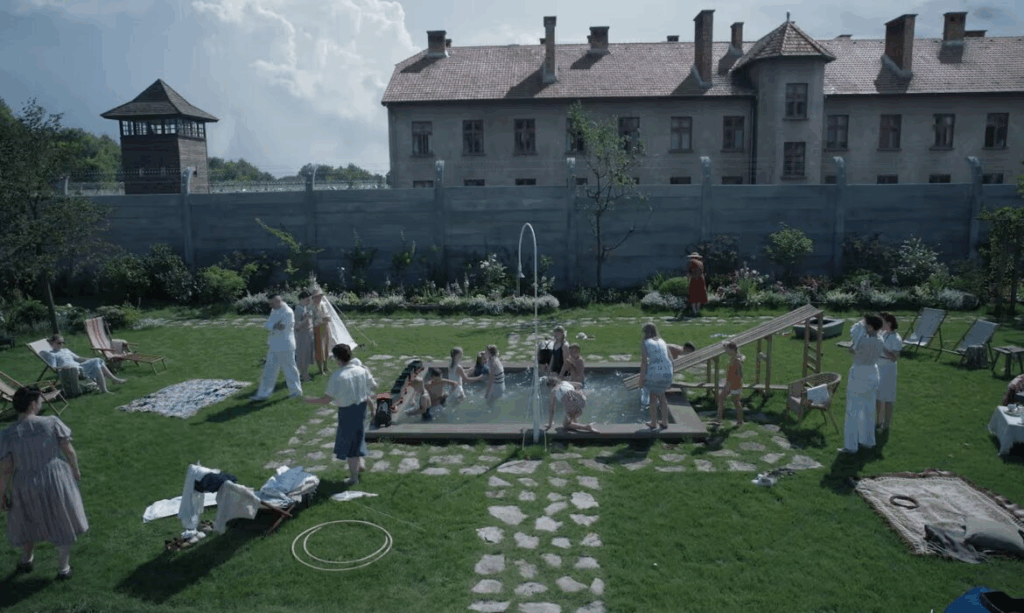
Plot Summary
The film revolves around the seemingly ordinary life of the Höss family, residing in a house adjacent to the Auschwitz concentration camp. Rudolf Höss (played by Christian Friedel) is an SS officer overseeing the camp’s operations. Meanwhile, Hedwig (Sandra Hüller) tends to the family, raising their children and maintaining a “perfect” life with a lush garden, family gatherings, and mundane daily routines. However, just beyond the wall, the screams, gunshots, and smoke from the crematoria serve as constant reminders of the atrocities taking place.
Rather than focusing on events inside the camp, the film portrays the normalization of evil through subtle details of the Höss family’s daily life. From Hedwig trying on lipstick taken from victims’ belongings to Rudolf’s casual discussions about his work, the film subtly yet chillingly illustrates how ordinary people can become desensitized to heinous acts.
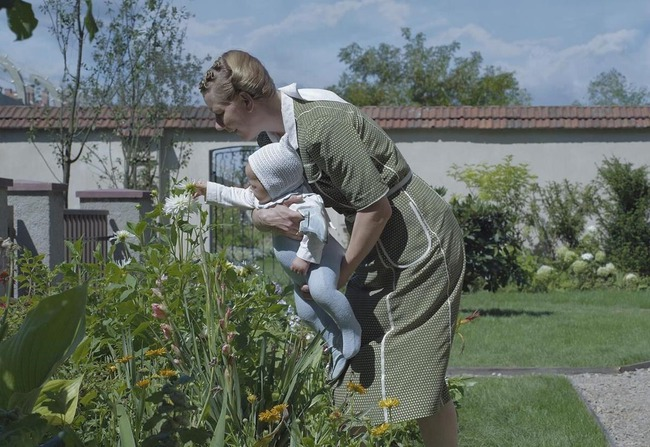
Artistic Style
Direction and Screenplay
Jonathan Glazer, known for films like Under the Skin and Birth, delivers a minimalist yet haunting storytelling style. Instead of using explicit scenes of violence, Glazer allows the audience to sense the horror through sound and indirect imagery. The screenplay, adapted from Amis’s novel, is meticulously researched, drawing from historical accounts, particularly the real-life experiences of the Höss family.
Sound Design
Sound is one of the film’s most striking elements. The score by Mica Levi, combined with the ambient sounds of the concentration camp—screams, gunshots, and the roar of the crematoria—creates a heavy, oppressive atmosphere. These sounds often linger in the background, starkly contrasting with the superficial tranquility of the Höss family’s life. This masterful use of sound not only enhances authenticity but also ensures the audience cannot ignore the reality just beyond the wall.
Cinematography
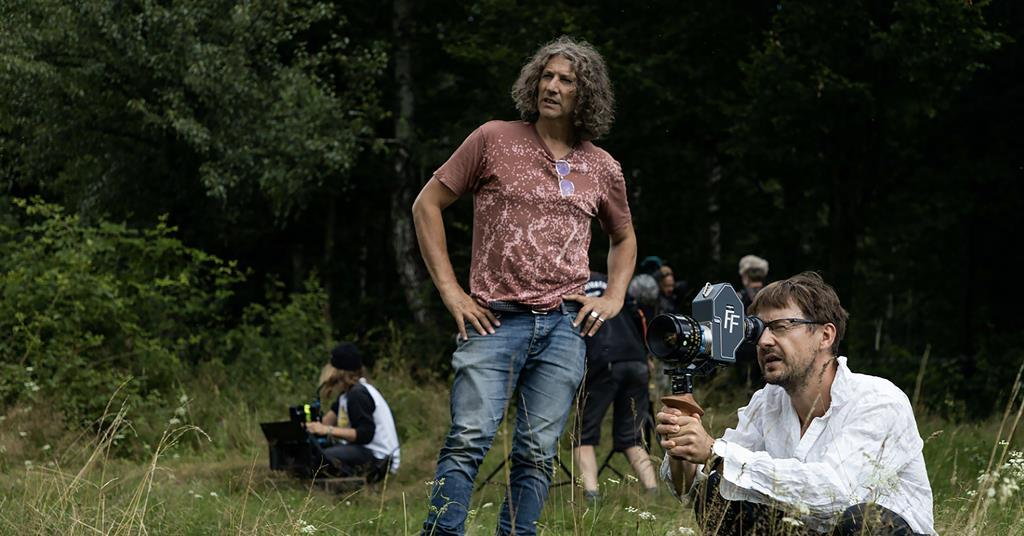
The film’s visuals, shot in cold tones, evoke a sense of detachment and unease. Long, static shots and distant framing emphasize the Höss family’s isolation from reality. Cinematographer Łukasz Żal employs modern filming techniques, including hidden cameras, to capture the most natural moments of the characters.
Acting
Sandra Hüller delivers an outstanding performance as Hedwig Höss, embodying a woman who is both terrifying and pitiable. She represents a paradox: a devoted mother who simultaneously benefits from her husband’s crimes. Christian Friedel is equally compelling as Rudolf Höss, portraying him as an ordinary man performing his duties with chilling professionalism and no moral qualms.
The supporting cast, including the children of the Höss family, also deliver natural performances, enhancing the contrast between innocence and the surrounding evil.
Themes and Message
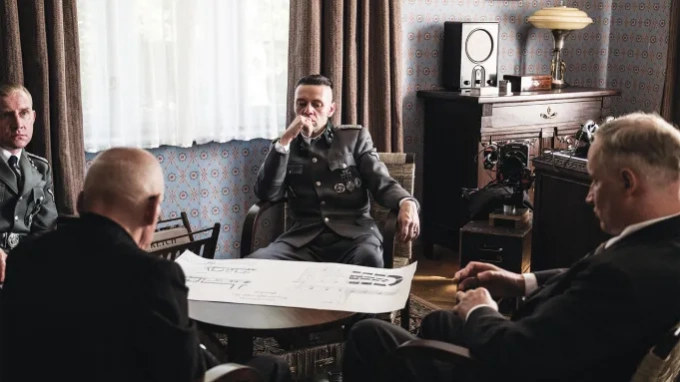
The Zone of Interest raises profound questions about the nature of evil and how people can become indifferent to horrific crimes. The film is not just about the Holocaust but serves as a timeless warning about human apathy. By focusing on the “ordinary” life of the Höss family, Glazer highlights that evil lies not only in direct actions but also in the acceptance and normalization of it.
The film also prompts reflection on personal responsibility. Are individuals like Hedwig, who do not directly commit atrocities but benefit from them, accountable? Is their silence and indifference culpable? These are questions that linger with viewers long after the film ends.
Overall Evaluation
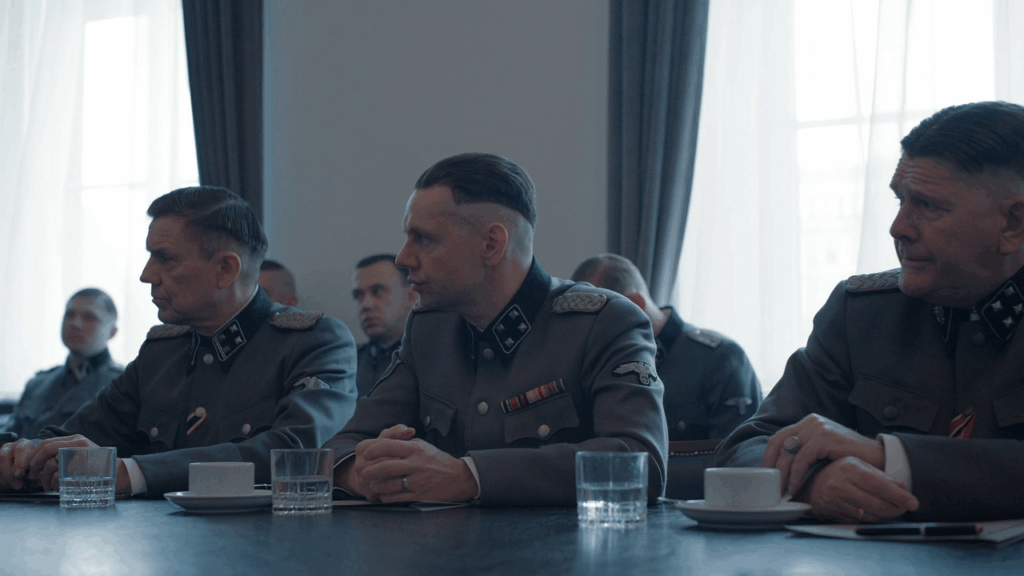
The Zone of Interest is a powerful cinematic work, not only for its historical context but also for its challenge to audiences to confront human nature. The film is not an easy watch, both due to its heavy subject matter and its demanding, reflective storytelling style. However, its boldness and uniqueness make it one of the standout films of 2023.
Strengths:
- Unique storytelling, using sound and imagery to convey its message.
- Exceptional performances, particularly from Sandra Hüller and Christian Friedel.
- Profound, timely, and humanistic themes.
- Outstanding cinematography and sound design, creating a memorable cinematic experience.
Weaknesses:
- The slow pace may not appeal to audiences seeking direct drama.
- The heavy subject matter may be unsettling or distressing for some viewers.
Conclusion
The Zone of Interest is more than a film about the Holocaust; it is a profound work of art about human indifference. With its bold approach and unique storytelling, Jonathan Glazer has crafted a film that is both beautiful and terrifying, subtle yet brutal. This is a must-see for those who appreciate arthouse cinema and wish to delve deeper into history and human psychology.
Rating: 9/10
Recommendation: Watch The Zone of Interest with an open mind, ready to reflect and confront difficult questions about morality and humanity.